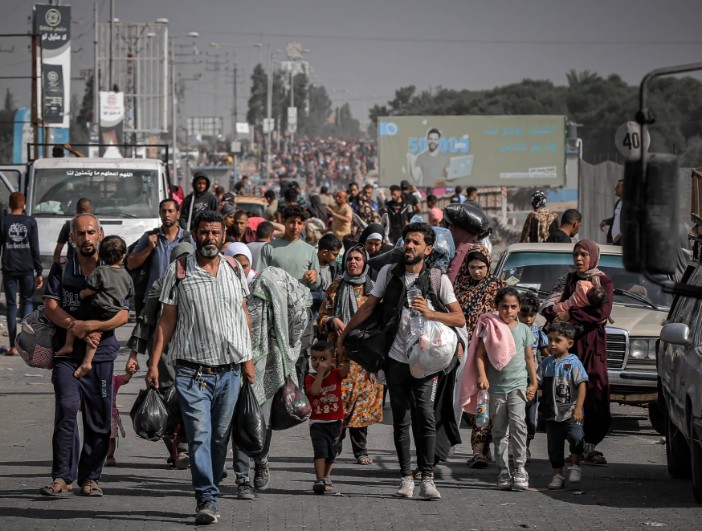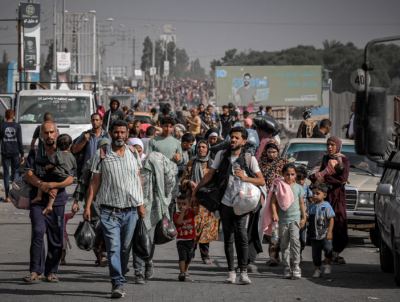Israel's orders for residents of Gaza to move south towards the Egyptian border during its assault, coupled with deteriorating humanitarian conditions, have sparked worries among Arabs and the United Nations about the potential forced migration of Palestinians across the border. Israel denies any plans to push Palestinians into Egypt's Sinai Peninsula while aiming to destroy the Islamic Resistance Movement (Hamas).
*What is Behind the Concerns?*
Palestinians have long been haunted by memories of the Nakba, marked by the expulsion of 700,000 from their homes upon the declaration of the State of Israel in 1948. Many were displaced or fled to neighboring Arab countries, including Jordan, Syria, and Lebanon, where many still reside in refugee camps. Israel challenges the narrative that they were forcibly removed from their homes. Recently, the conflict has seen unprecedented Israeli bombardments and a ground assault in Gaza, leading to the destruction of urban areas throughout the enclave. Palestinians and UN officials assert that there are no longer any safe regions within Gaza to take refuge.
*What Happened During This Conflict?*
Before launching its ground offensive in Gaza, Israel initially instructed Palestinians in northern Gaza to relocate to what it claimed were safe areas in the south. As the attack expanded, Israel directed them to head south towards Rafah, close to Egypt, the only country, besides Israel, sharing a border with the 40-kilometer-long Gaza Strip. According to UN estimates, approximately 85 percent of the 2.3 million residents of Gaza, one of the most densely populated areas in the world, have already been displaced from their homes and are currently crowded into a smaller area near the border.
*What Has Happened Previously at the Gaza Border?*
No war of such intensity has occurred in Gaza before; however, in past conflicts and skirmishes with Israel over the last few years, there was not mass flight from Gaza across the border. Incidents of border breaches with Egypt have occurred, though the number of those crossing was in the hundreds or thousands, with most not seeking asylum or intending to stay. After the Israeli withdrawal from Gaza in 2005, Palestinians breached the fence, with some climbing it using ropes. In one instance, Palestinian militants executed a collision with a concrete barrier to create a gap.
*Is a Major Displacement Possible in This Conflict?*
Many Palestinians within Gaza assert they will not leave, even if given the chance, fearing it could lead to another permanent displacement reminiscent of 1948. Meanwhile, Egypt has maintained strict control over its border, only allowing a few thousand foreigners and dual nationals, along with a limited number of others, to leave Gaza. The scale of this conflict surpasses previous crises and uprisings in Gaza over the past decades, with the humanitarian catastrophe for Palestinians worsening daily, leaving them without enough food or water, while only a few hospitals remain operational.
*What Do Arab Countries and the United Nations Say?*
Since the early days of the conflict, Arab governments, particularly Egypt and Jordan, Israel’s immediate neighbors, have stated that Palestinians must not be expelled from the land where they aspire to establish their future state. These nations, like the Palestinians, fear that any mass movement across the border would undermine the chances for a "two-state solution" and leave Arab countries to deal with the repercussions. As the humanitarian crisis deepens, senior UN officials have echoed concerns about potential mass displacement. UN Secretary-General António Guterres stated recently, "I expect that the public order will completely collapse soon, and this could unfold in a worse scenario involving epidemics and increasing pressure for mass displacement to Egypt." Philippe Lazzarini, the Commissioner-General of the UN Relief and Works Agency for Palestine Refugees (UNRWA), noted in the Los Angeles Times that "the developments we are witnessing indicate attempts to transfer Palestinians to Egypt, regardless of whether they will stay there or be resettled elsewhere."




